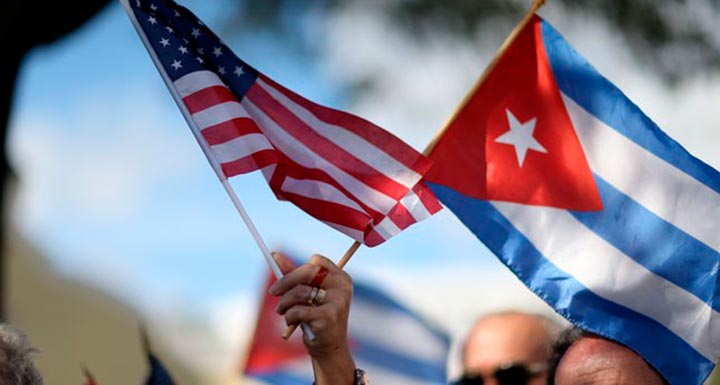
Biz braces for next steps in Cuba
Business and advocacy groups are steeling for a fight on Capitol Hill as the Obama administration works to draft regulations easing travel and trade restrictions in Cuba.
Though the historic policy shift is being carried out via the president’s executive authority, advocates of “normalized” relations with Havana expect opponents on both sides of the aisle to obstruct the initiative through congressional maneuvers.
Already, at least one lawmaker is calling for hearings to scrutinize the plan, and business leaders expect others to attach riders to appropriations bills in an effort to keep funding at bay.
“There are going to be roadblocks,” Sarah Stephens, executive director of the Center for Democracy in the Americas, said Tuesday during remarks at the National Foreign Trade Council (NFTC).
“There are going to be things that will seem like they’re derailing this process,” she said. “I just really don’t think that they will be able to … that’s not to say there isn’t going to be a real fight on the Hill.”
The spending bill for the Department of Homeland Security could come to the floor of the House as early as Wednesday, and lawmakers could have amendments ready to “muck up the process,” she said.
Business groups, who have hailed the president’s executive action as the biggest diplomatic breakthrough between the two countries in more than five decades are hoping support for normalized relations will snowball as more people become authorized to travel to the island.
But President Obama’s move to lift restrictions has come under fire from lawmakers who argue that the initiative is tantamount to rewarding the Castro regime for bad behavior.
In a speech on the Senate floor Tuesday, Sen. Robert Menendez (D-N.J.), the ranking member of the Senate Foreign Relations Committee, urged panel Chairman Bob Corker (R-Tenn.) to hold hearings on what he called a “dramatic and mistaken change of policy.”
Menendez said it’s alarming for the administration to suggest taking Cuba off the State Sponsors of Terrorism list.
“The fact is — as a Cuban-American who has spoken out time and time again on the brutal repression of the Cuban people under the Castro regime, someone whose family has suffered the consequences — I believe the agreement the administration has reached with the Castro regime is one-sided and misguided,” he said.
The scope of Obama’s plan hinges on regulations, giving Congress limited sway over the process.
Federal agencies are expected to fast-track new rules for travel and exports to Cuba this month.
The Commerce Department is tasked with changing the rules to allow cellphones, laptops and routers to be exported to Cuba for commercial sale, while the Treasury Department is expected to make changes meant to ease banking restrictions.
First to come, advocates say, will be a general license for travel, making the process easier for authorized travelers.
“They’re telling us weeks, not months,” Stephens said.
But new rules from the U.S. won’t immediately open the door for business in Cuba, said Jake Colvin, vice president of Global Trade Issues at the NFTC.
It’ll take time, he said, before Starbucks and Wal-Mart can open on a Havana street corner, in large part because the U.S. will have to wait for Cuba to implement corresponding regulatory changes.
“I think anybody who thinks that because our piece is fast-tracking to be ready in two, three weeks, anybody who thinks that means they’re about to do business with Cuba is going to be disappointed,” Stephens said.
“Things move so slowly in Cuba and are so bureaucratic,” he added. “It’s a country that has been for a very long time in the ‘just say no’ mode. Getting anything to change is going to be slow.”
(From: The Hill)

